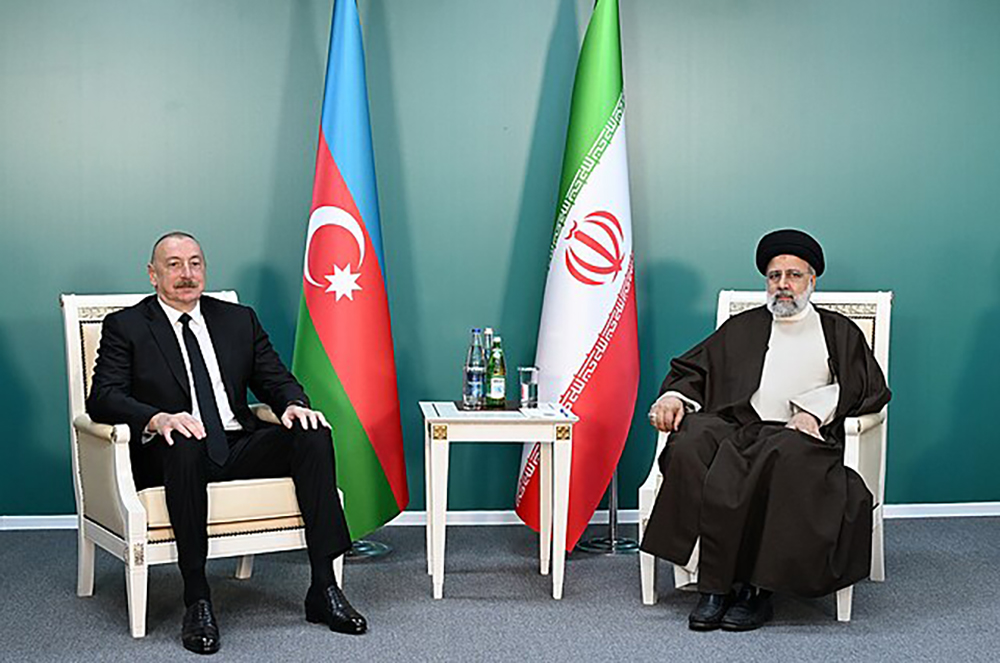|
Getting your Trinity Audio player ready...
|
By: Sean Durns
The president of Iran, Ebrahim Raisi, died in a helicopter crash on Sunday. Several others, including Tehran’s foreign minister, Hossein Amirabdollahian, were also on board and perished in the rugged northern Iranian wilderness.
Raisi’s death has greater implications for the future than the present.
Raisi, 63, had served as president since 2021. A longtime regime apparatchik, he was nicknamed “the Hangman” and “the Butcher” for his role in the execution of thousands of political prisoners in the late 1980s. He spent subsequent decades serving in a variety of roles, steadily earning the confidence of Iran’s supreme leader, Ayatollah Ali Khamenei. Raisi was believed to be one of a handful of men being considered to replace Khamenei, who has ruled the Islamic Republic since 1989. Khamenei is 85 and has reportedly been in ill health for several years. Raisi’s death will bring uncertainty, but it is unlikely to destabilize the regime.
The Islamic Republic is a theocracy ruled by its supreme leader and his mullahs. The position of president is largely ceremonial. Indeed, the supreme leader chooses members of the Guardian Council, which, among other things, approves potential candidates for the presidency. Under Iran’s byzantine system, it is the supreme leader, not the president, who rules. No one becomes president, and no major policy is enacted, without the supreme leader’s blessing.
According to the regime’s constitution, when a president dies, his successor is “chosen” by the supreme leader. There is no requirement that a new election be held. Instead, the first vice president, the speaker of the parliament, and the chief justice form a council to choose the succession mechanism. As Shay Khatiri, an Iranian-born senior fellow at the Yorktown Institute, noted: “in effect this means that Khamenei will decide.”
Khamenei could call for a new election. Or the council that he chooses could simply pick someone. It is at his discretion. This highlights an important fact: Raisi’s death won’t change much, if anything, either in Iran or in the broader Middle East. Raisi didn’t call the shots anyway.
When Raisi first ran for president, he lost the 2017 election to Hassan Rouhani, who was widely hailed in the West as a “moderate.” But a system such as the Islamic Republic produces murderers, not “moderates” as the West understands the term. Those who ascend due so because they’re deemed acceptable by the powers that be.
To be sure, Raisi’s death injects some uncertainty; we don’t know who his replacement will be or when or how they’ll be chosen. It’s possible, but unlikely, that in naming a successor, the regime could alienate key constituencies or appear vulnerable enough to encourage protests or mass demonstrations.
Raisi’s death also comes at a pivotal moment in the Middle East. Tehran’s extensive proxy network, including Hamas, Hezbollah, and the Houthis, among others, are at war with Israel. And Iran is reportedly making considerable progress in its illegal nuclear weapons program — fueling concerns of an even broader war. Yet these are concerns for the supreme leader, his close advisers, and the repressive apparatus that allows them to maintain power.
But ultimately even a supreme leader can’t cheat death. Raisi’s own death eliminates the man that some felt was destined to succeed Khamenei, potentially altering Iran’s future. However, someone, perhaps even Khamenei’s own son, Mojtaba, will likely become supreme leader. The system will endure — bringing more misfortune and tragedy to both the Iranian people and the broader Middle East.
The writer is a senior research analyst for CAMERA, the 65,000-member, Boston-based Committee for Accuracy in Middle East Reporting and Analysis.




